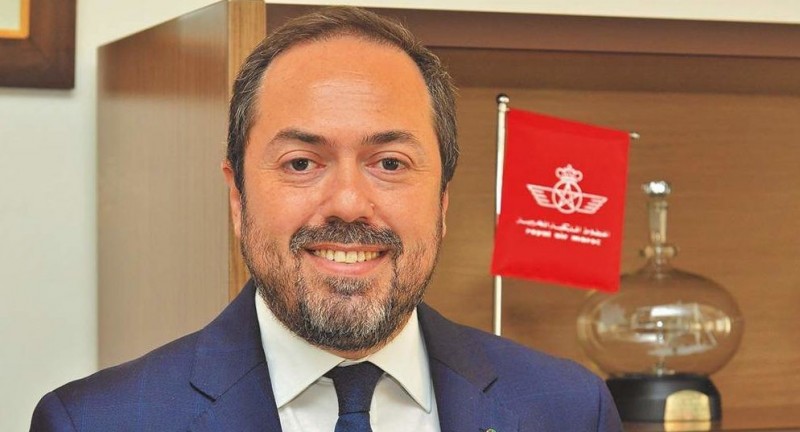Royal Air Maroc Eyes Expansion in Europe, Africa in Post-COVID Economy

Rabat - Abdelhamid Addou, CEO of Royal Air Maroc (RAM), announced the company’s growth strategy to transform the national carrier into a global connector between Africa and Europe in a post-COVID transition.
“The best lesson we can take from the Covid period [is that] there is always room for improvement, even when there is no business, and maybe that is the right opportunity to change things,” Addou said during an interview with Flightglobal in Doha.
The national carrier is preparing for the launch of a new tender for 22 regional, short-haul, and long-haul aircrafts, Addou added.
RAM is determined to become a global connector between Africa and Europe, the CEO remarked, arguing that the national carrier must “invest in more planes [and] have an airport with a much bigger size and a more efficient quality and customer experience.”
Under its new growth strategy, the national carrier looks to prioritize the digitization of its services and systems and work with unions to improve its “efficiency and productivity.”
Thanks to these transformations, RAM secured membership status in the Oneworld Alliance, Addou noted, before adding that the Moroccan carrier has not yet reached the level of the other alliance members, as it continues to face competition from the low-budget carriers that dominate 80% of the national market.
Despite facing competition and “sky-rocketing” jet fuel prices, Addou assured that Royal Air Maroc is expecting a complete recovery from COVID and war in Ukraine by 2024.
“We should be finishing the year at about 90% of our 2019 network,” Addou said. “At the beginning of 2023, we should have recovered our network.”
Following the border closures at the beginning of the pandemic, Royal Air Maroc had adopted a layoff plan to cut the company’s costs. The plan ultimately affected 30% of the company’s workers.
Rabat - Abdelhamid Addou, CEO of Royal Air Maroc (RAM), announced the company’s growth strategy to transform the national carrier into a global connector between Africa and Europe in a post-COVID transition.
“The best lesson we can take from the Covid period [is that] there is always room for improvement, even when there is no business, and maybe that is the right opportunity to change things,” Addou said during an interview with Flightglobal in Doha.
The national carrier is preparing for the launch of a new tender for 22 regional, short-haul, and long-haul aircrafts, Addou added.
RAM is determined to become a global connector between Africa and Europe, the CEO remarked, arguing that the national carrier must “invest in more planes [and] have an airport with a much bigger size and a more efficient quality and customer experience.”
Under its new growth strategy, the national carrier looks to prioritize the digitization of its services and systems and work with unions to improve its “efficiency and productivity.”
Thanks to these transformations, RAM secured membership status in the Oneworld Alliance, Addou noted, before adding that the Moroccan carrier has not yet reached the level of the other alliance members, as it continues to face competition from the low-budget carriers that dominate 80% of the national market.
Despite facing competition and “sky-rocketing” jet fuel prices, Addou assured that Royal Air Maroc is expecting a complete recovery from COVID and war in Ukraine by 2024.
“We should be finishing the year at about 90% of our 2019 network,” Addou said. “At the beginning of 2023, we should have recovered our network.”
Following the border closures at the beginning of the pandemic, Royal Air Maroc had adopted a layoff plan to cut the company’s costs. The plan ultimately affected 30% of the company’s workers.
Since Morocco reopened its borders on February 7, the North African country has welcomed thousands of tourists and Moroccans living abroad which helped revive RAM activities and the country’s tourism sector.
The economic rebound of airline activities in the MENA region was recently a subject of a report issued by the International Air Transport Association (IATA).
The report noted that MENA, home to 4% of global passengers, is set to recover 80.5% of its pre-pandemic capacity and 79.1% of its 2019 levels of demand this year.
Nevertheless, rising inflation and interest rates as well as surging fuel and labor-related costs are expected to hinder the recovery of the aviation sector in the MENA region.
Morocco is no exception. As noted by Abbou, the fuel costs represent 25-30% of RAM's total costs and would highly offset the company’s profits.

